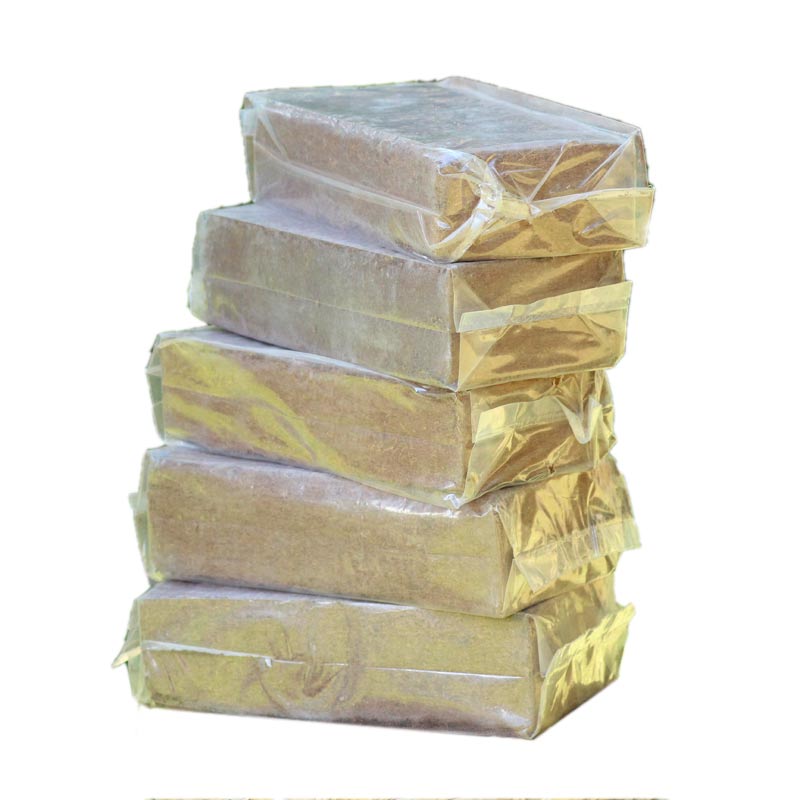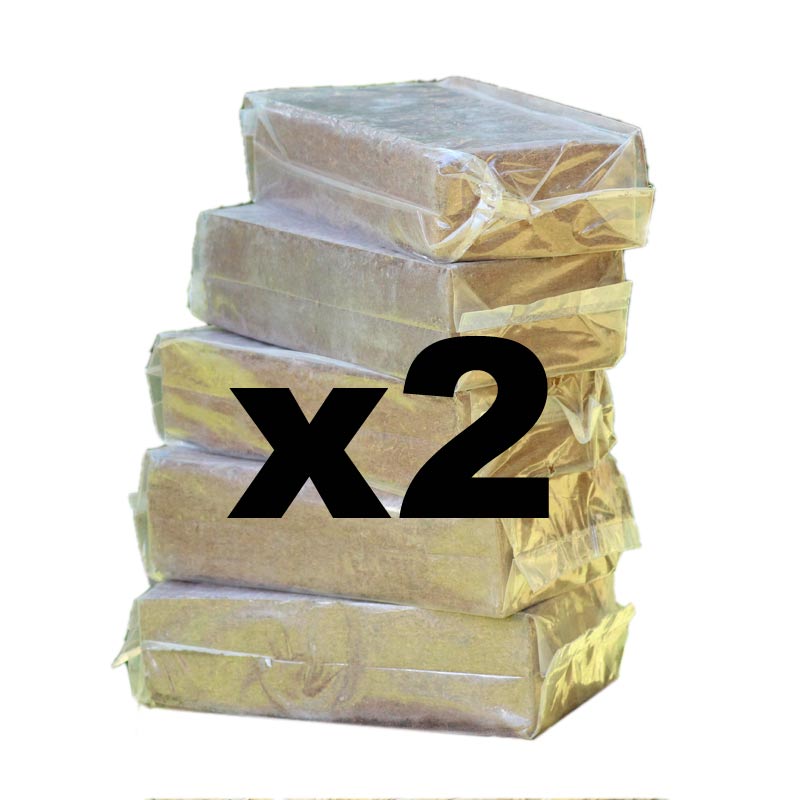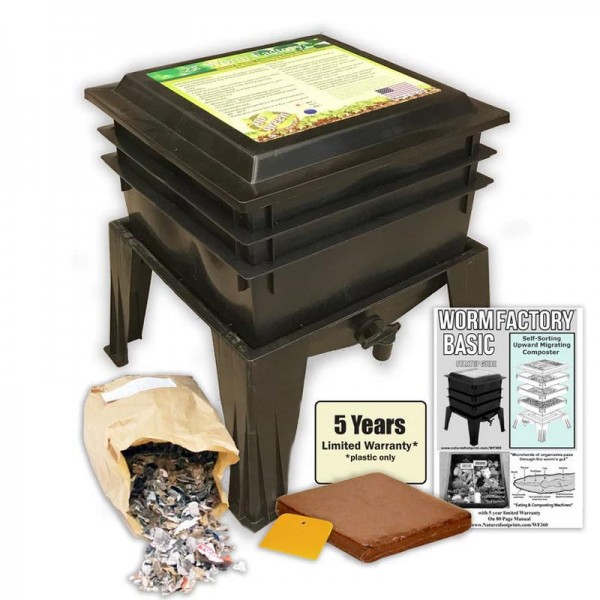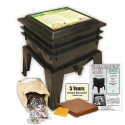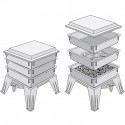Overview
Americans throw away 34 million tons of food waste into landfills each year, more than any other type of waste. While traditional backyard composting has its place, the process can take up to two years and rotating it can become a chore. Luckily, there are more efficient ways to get worms to compost your kitchen scraps.Housing your worms inside a worm factory is the quickest, easiest way for them to break down your kitchen scraps. As waste is broken down, moisture filters through the system, taking nutrient-rich particles with it-- a by-product of the composting process. This creates a nutrient rich, organic fertilizer (compost tea) which can be harvested right from the spigot at the bottom of the tower.
The Worm Factory 360 can house thousands of composting worms in a compact space. This eliminates all the work of traditional composting and yields a much more valuable end product. With the worms doing all of their composting in a concentrated, controlled environment, the compost produced inside a worm factory will be absolutely packed with nutrients, microbes and water soluble plant nutrients; everything your garden needs for a bountiful harvest.
What's Included
- 3 Trays
- “Quick Tips” instructions on lid
- Improved base and lid design for better air circulation
- Start up instruction booklet
- Link to video guide for beginners
- Start-up worm bedding
How To Use
The Worm Factory Basic features the same working parts as a Worm Factory 360 without the extras, for an affordable entry level product to get you composting! Includes 3 trays, lid, stand with built in collection tray and spigot, set up guide, and bedding materials to get you started.The Worm Factory Basic is simple to set up and operate. Managing your Worm Factory Basic takes less than 15 minutes a week. Included with each Worm Factory Basic is a comprehensive instruction guide that makes setup easy and gives detailed tips on how to best manage your new Worm Factory Basic year-round.
Start with just the bottom tray and bedding material provided. Add composting worms and start filling the tray with household waste. The worms will process and recycle the waste into fine compost full of nutrients. When the first tray is full, stack another on top. Each tray has a grid bottom, so worms migrate upward as new food is added.
Adding household waste to the Worm Factory Basic is easy; just open the lid and toss the food in. Fruits, vegetables, grains, paper, egg shells, leaves, coffee grounds and more can be added. As waste is broken down, moisture filters through the system, taking nutrient-rich particles with it. This makes it possible to harvest organic liquid fertilizer right from the spigot.
Don't worry about feeding your worms every day. Some people feed them a handful a week; some people feed them a handful a day. The general rule of thumb is to check your food levels once a day and feed when it looks like the scraps are mostly mush.
The Worm Factory Basic is expandable vertically, allowing a high compost capacity while maintaining a very small footprint. When full, each tray weighs 12.5 pounds, making lifting and arranging trays effortless.
How Many Worms Do I Need?
The amount of worms you need will depend on how much food you will have available to feed them. Use the following questions to determine how many worms to start with:If you are preparing fresh food daily with lots of vegetable scraps (peels, rinds, stems, outer leaves, etc) as well as often cleaning out old leftovers from the refrigerator, the maximum amount you should start with is:
- 2000 Red Wigglers OR
- 1000 European Nightcrawlers OR
- 2 LBS African Nightcrawlers OR
- 1000 Red Wigglers & 500 European Nightcrawlers
If you are preparing fresh food a maximum of 3 times a week with some vegetable scraps as well as throwing away refrigerator leftovers about once a week, the maximum amount you should start with is:
- 1000 Red Wigglers OR
- 500 European Nightcrawlers OR
- 1 LB African Nightcrawlers
Good To Know
- Three foods to avoid are diary, meat, and citrus items; these can be harmful to the worms and are difficult to compost.
- Feed your worms about 50% food scraps and 50% fiber and paper. This creates the optimal environment for worms and finished compost. The goal is to recycle what you usually throw away.
- In a healthy environment composting worms will maintain their population without over or under populating.
- It is important to note that worms are living creatures, and cannot tolerate extreme temperatures. Keep the Worm Factory 360 so that the bedding remains between 40 and 80 degrees Fahrenheit, or where you would personally feel comfortable.



